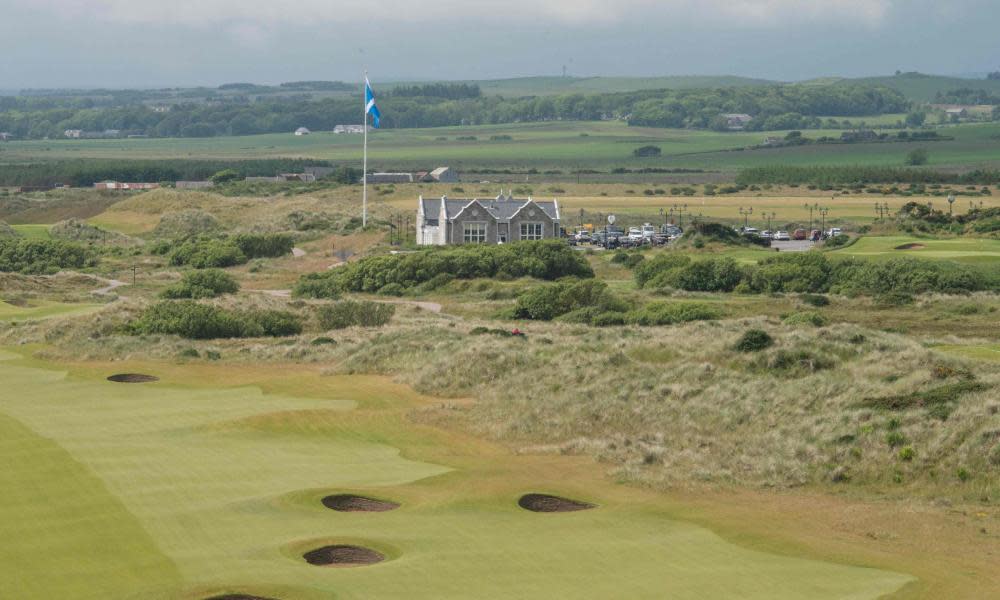Trump Organization faces £5m charge over luxury housing in Scotland

Donald Trump’s property firm faces a £5m surcharge because it has refused to include any affordable homes in a new luxury housing estate beside his Aberdeenshire golf course.
The Trump Organization, which is run by the president’s sons, Eric and Donald Jr, wants to build 550 luxury homes and “leisure units” in fields a few hundred metres from their 18-hole golf course north of Aberdeen.
Their proposals are expected to be voted on by Aberdeenshire councillors at meetings in February and March, and have attracted nearly 3,000 letters of protest – the highest number in the council’s history.
This week the council’s housing officials told councillors they would only support the proposals if the Trumps stumped up £5m to help meet a significant shortage of affordable homes, or the plans were changed to include affordable homes.
Aberdeenshire’s affordable housing strategy says cash compensation is only allowed in “rare and exceptional” cases, and then as a last resort, where developers fail to include any affordable housing in a scheme and also fail to provide alternative sites for those homes.
Aberdeenshire has a mandatory policy that all new housing projects must include 25% affordable housing, based on a Scottish government target that up to a quarter of housing schemes must be affordable.
Last year, Aberdeenshire had more than 6,000 people on its housing waiting lists and the council hopes to spend £250m building 2,000 new homes. Housing officials signalled last year this was likely to be a sticking point for the Trump Organization and have now formally requested the £5m payment as part of the planning application.
It is thought the housing department’s stance could strengthen councillors’ opposition to the proposals, on the grounds that other, less powerful developers would be forced to include affordable homes in their plans.
The Trumps would probably appeal to Scottish ministers, echoing the dispute they had with Aberdeenshire in 2008 when the original proposals for a £750m golfing resort were rejected and then accepted on appeal.
While council departments, such as economic development, say the new housing would be useful, the scheme overturns the original masterplan agreement for Trump’s estate in 2008. That deal stipulated that private homes can only be built after tourist facilities are in place.
Belhelvie community council has also put in a long list of objections, including the lack of any affordable homes for local people.
Trump’s company had argued it was providing 27 flats as affordable accommodation but that appears to have been rejected by the council as those flats are for estate staff, not ordinary residents.
Cllr Martin Ford, the Green party councillor who used his casting vote as chair of a local committee to temporarily block Trump’s golfing resort scheme in 2008, said the lack of affordable housing was a critical issue.
“Mr Trump’s application for outline planning permission for a golf resort was also contrary to numerous planning policies,” Ford said. “The unique treatment of that application – it was ‘called in’ and granted by the Scottish government – undoubtedly had much to do with the identity of the applicant.
“This time there must be no special favours for Mr Trump’s business. Councillors should stick to planning policy and decide accordingly.”
The Trump Organization has been approached for comment.

 Yahoo News
Yahoo News 
